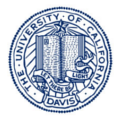Spring 2025: see the Canvas page for updates and the latest information for Phy 157.
The aim of this course is to introduce you to the principles of experimental physics. This includes building a working knowledge of electronics, error analysis and statistics, two main experiments, and presentation of your findings in a report consistent with established practices for physics and astronomy journals. This course satisfies 4 units of the lower level GE writing requirement. Admission is by permission of the instructor.
In the first week you will:
- Perform your mandatory experiment, Photon Counting.
- Complete a mandatory lab on Error Analysis.
- Read On Being a Scientist: Responsible Conduct in Research.
Be sure to complete all of the assigned reading and Pre-Labs in advance of class; we will have quizzes at the start of class. Because you will work in teams, you will not be allowed to begin your experiment until successfully completing the Pre-Lab. Pre-Labs are critical: students who fail to hand in their Pre-Lab will automatically fail the course. For the day to day schedule see the Calendar tab.
Professor
Tucker Jones 513 Physics
Teaching Assistant
Cecilia Steel
Meeting Schedule
Professors and TA will be available M, W 2:10 PM - 6 PM in 154 & 156 Roessler.
The same rooms will be available to students M-F 9 AM - 5 PM. Enter through 156.
The Observatory on the roof of the Physics Building and/or Hutchison Hall will be used at night during the quarter.
Grading
Your letter grade will be based on a combination of "points" and your in-lab performance. The counting statistics experiment is worth 10 points, pre-labs and homework and lab books are worth 10 points, and each of the two elective experiments is worth 40 points. Letter grades will also be based class performance including teamwork and demonstrated ability to problem-solve. You will not be penalized for not getting the correct answer; rather your grade will depend on how systematically you approach the tasks and solve the inevitable problems. Note that the goal of this course is not to teach you the right answer but to instruct you how you can figure out the answers. We are here to help and to guide you in this process. We will teach you problem-solving strategies, for instance, by asking questions rather than giving you the answer you might actually seek.
Useful Information on Physics Careers
Email Tucker to report broken links or other problems with these pages.






